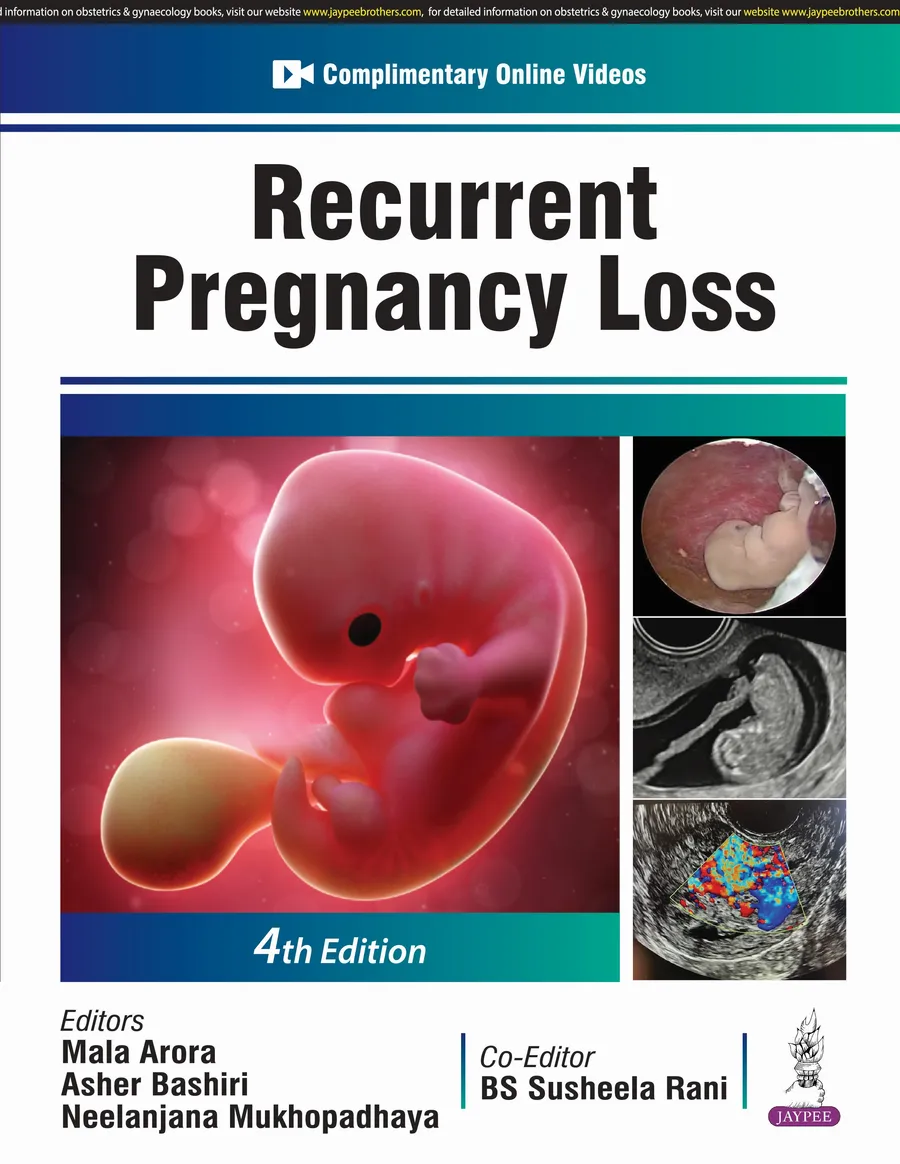Home
|
Products
|
9789356962026

Recurrent Pregnancy Loss
by MALA ARORA
Highlights

9789366169460
ISBN

MALA ARORA
Author

568
Pages

0.9 gm
Weight

English
Language

2025
Year

4th Edition
Edition

Paperback
Binding
₹3647
₹4995
The field of recurrent pregnancy loss (RPL), as it stands today, is riddled with controversies. From its very definition, two versus three miscarriages, and again consecutive versus nonconsecutive losses, there is no consensus among guidelines. The workup required in every couple of RPL and the extended battery of tests that may help to unravel the diagnosis are not yet standardized. Despite guidelines on RPL published by the European Society for Human Reproduction, the American Society of Reproductive Medicine, the Royal College of Obstetricians and Gynaecologists, and many other national bodies, the reader remains confused due to the discrepancy in their recommendations. Being of a multifactorial etiology, the domain of RPL is shared by obstetricians, specialists in assisted reproduction, endoscopists, endocrinologists, and rheumatologists. It is not surprising then that treatment consensus guidelines will need to incorporate evidence-based recommendations from different subspecialist societies, i.e. rheumatology, genetics, endocrinology, and gynecological endoscopy. A large group of women may not identify the cause of recurrent miscarriages. The frustration of both the affected couple and the treating obstetricians leads to rampant use of empirical therapies in unexplained recurrent miscarriages. The aim of the editors is to provide data to minimize this large group of unexplained recurrent miscarriages in the coming decade. Research in this field is also limited by the fact that the number of patients affected by RPL is small and when broken up according to different etiological factors, each center deals with a small number of patients. Hence, to collect data from multicentric studies, the research protocols need to follow standard definitions and diagnostic criteria. This has been lacking so far, hence the paucity of robust data by way of meta-analysis and systematic reviews. The mental well-being of RPL couples has not received due attention, and it is now evident that unresolved stress may be a driver for poor obstetric outcomes. There are no guidelines on quantifying maternal stress and uniform strategies of resolving it.
Online store of medical books
Discover a comprehensive range of medical books at our online store. From anatomy and physiology to the latest clinical guidelines, we've got you covered.
Trusted by students, educators, and healthcare professionals worldwide. Browse top publishers and expert-authored titles in every medical specialty. Enjoy fast shipping, secure payments, and easy returns. Your one-stop destination for quality medical knowledge at your fingertips.
Whether you're preparing for exams or expanding your clinical expertise, our curated collection ensures you have the right resources at hand. Dive into detailed illustrations, case studies, and up-to-date research that enhance your understanding and practical skills.
We regularly update our inventory to include the latest editions and newly released titles, helping you stay current in the ever-evolving medical field. Our advanced search and filtering tools make finding the perfect book quick and hassle-free.
Join our community of lifelong learners and medical enthusiasts. Sign up for exclusive discounts, early access to new arrivals, and personalized book recommendations tailored to your professional interests.
